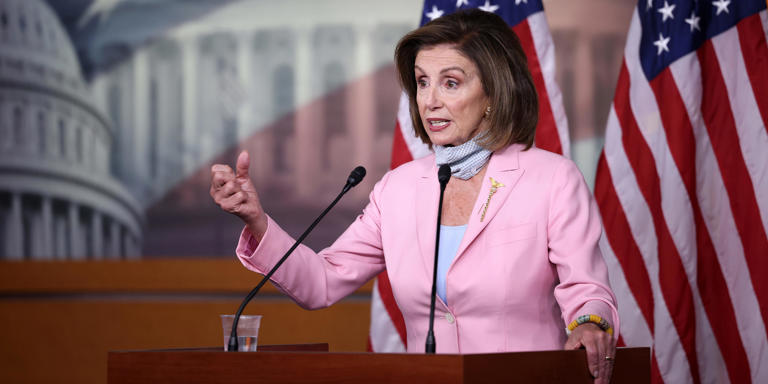The DEMZ and MAGA ETFs represent innovative investment vehicles that allow investors to incorporate their political beliefs into their financial strategies. These exchange-traded funds are distinctively tailored to include companies that predominantly support either Democratic or Republican causes through their political contributions.
DEMZ: Democratic Large Cap Core ETF
The Democratic Large Cap Core ETF, trading under the ticker symbol DEMZ, focuses on companies that have demonstrated a strong commitment to Democratic candidates and causes. Specifically, DEMZ mandates that its constituent companies allocate over 75% of their political donations towards Democratic campaigns. This criterion aims to attract investors who prioritize supporting businesses aligned with Democratic values and policies.
Since its inception in November 2020, DEMZ has shown remarkable performance metrics, consistently outperforming both its Republican counterpart, MAGA, and the broader market benchmark, the S&P 500 index. As of recent data, DEMZ has achieved an impressive gain of 78.3%, compared to MAGA’s 76.6% over the same period. This outperformance extends across various time frames, including one-year and three-year periods, underscoring DEMZ’s robust investment strategy and market positioning.
A key driver behind DEMZ’s superior performance is its strategic allocation in mega-cap technology stocks. These include industry giants such as Nvidia, Apple, Microsoft, and others, which collectively account for approximately 36% of DEMZ’s portfolio. The dominance of technology stocks within DEMZ’s holdings has been pivotal in generating substantial returns, leveraging their strong growth prospects and market leadership positions.
MAGA: Make America Great Again ETF
Conversely, the Make America Great Again ETF (MAGA) caters to investors seeking exposure to companies that heavily support Republican interests. MAGA includes firms from the S&P 500 index that are known for their significant contributions to Republican causes through political donations. This ETF targets investors who align their investment decisions with Republican ideologies and policies.
In terms of portfolio composition, MAGA differs significantly from DEMZ. It allocates its assets across industrial, financial, and energy sectors, reflecting its focus on sectors traditionally associated with Republican support. The top holdings in MAGA include companies like Vistra, Howmet Aerospace, Charter Communications, Amgen, and Garmin, which collectively drive its investment performance in these sectors.
Comparative Performance and Investor Interest
The performance disparity between DEMZ and MAGA underscores the impact of sectoral allocation on ETF returns. DEMZ’s concentrated exposure to high-growth technology stocks has propelled its outperformance relative to MAGA and the broader market. This sectoral strategy has resonated well with investors seeking growth opportunities in dynamic sectors of the economy.
Furthermore, DEMZ has also garnered greater assets under management (AUM), managing approximately $36 million compared to MAGA’s $21 million. This disparity in AUM highlights DEMZ’s stronger investor appeal and confidence, likely driven by its compelling historical performance and strategic focus on growth-oriented sectors.
Conclusion
The DEMZ and MAGA ETFs represent more than just investment tools; they provide a means for investors to express their political beliefs through their financial decisions. DEMZ’s strong performance, driven by its tech-heavy portfolio and Democratic-aligned corporate contributions, illustrates its appeal to investors seeking growth and alignment with Democratic values. Conversely, MAGA caters to investors who prioritize sectors traditionally supported by Republican policies. Together, these ETFs exemplify how investors can integrate their political views into their investment strategies, reflecting broader trends in socially responsible investing and market segmentation based on political affiliations.
